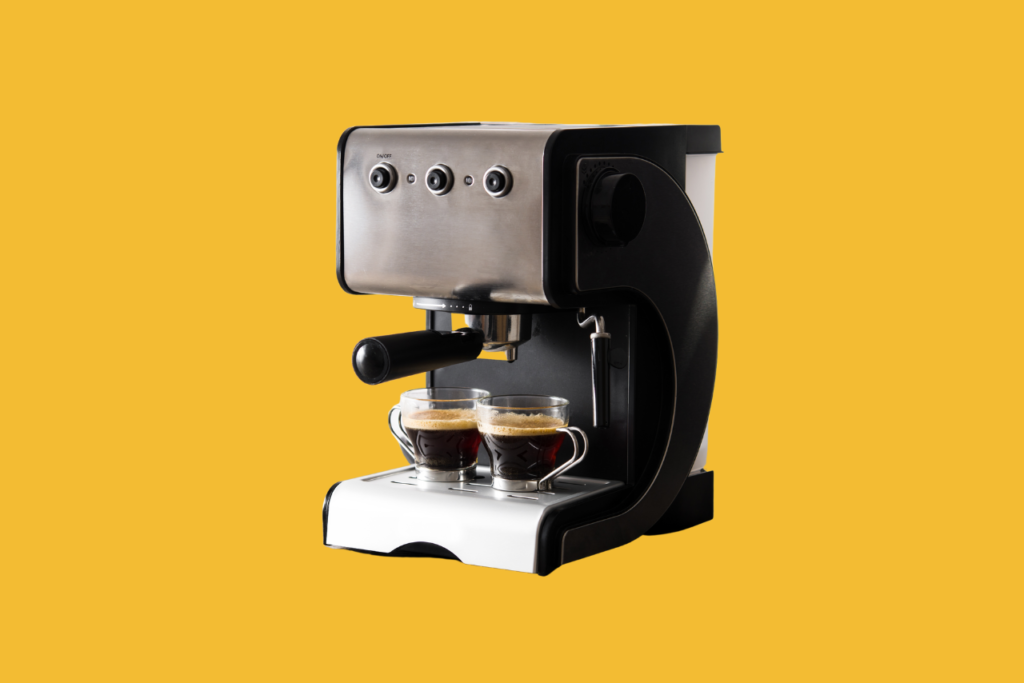Why, indeed. You might be thinking, when a regular cup of Joe is so rich and reviving, just why would I drink a reputedly ‘lesser’ version of the good stuff?
Indeed, coffee has, for generations, been the fuel to kick start a day, but when consumed to excess, it can have a few, shall we say, unwanted side effects.
Whilst we personally wouldn’t want to kick our caffeinated cups of Joe to the kerb entirely, if you’re keen to change things up occasionally, reducing those jitters and increased trips to the bathroom whilst still enjoying the great taste and potential health benefits of coffee, then have you considered decaf coffee?
If the word ‘decaf’ hasn’t got you rushing to the back button, then welcome, we’re glad you keep an open mind. Should you be wondering why people drink decaf coffee and if it has any health benefits, then you’ve come to the right place. Let’s explore below…
Firstly, Let’s Look At The Potential Benefits Of Drinking Normal Coffee…
Though coffee is the world’s most consumed psychoactive substance, and was once considered to carry some serious health risks, scientific opinion now generally considers coffee, when enjoyed in moderation, to be harmless. In fact, it could even offer some health benefits. According to BBC Good Food, coffee may:
- Help you live longer – drinking coffee three times a day might lower the risk of several life threatening conditions, including heart disease.
- Increase energy and focus – a study published by the British Nutrition foundation found that coffee (with caffeine) could improve cognitive performance.
- Give your metabolism a boost – coffee might even help with weight management by boosting your metabolism.
- Help with your blood/sugar balance – there is even some evidence that coffee consumption might lower your risk of developing type 2 diabetes.
Coffee also contains some essential nutrients which the body needs to function to its full potential. These include Vitamin B2, Vitamin B3, Vitamin B5, manganese and potassium.

& What Might Be The Risks Of Drinking Too Much?
That said, coffee isn’t some kind of ‘wonder drug’. The studies and potential findings we mentioned above require more scientific scrutiny before any conclusions can be drawn. What’s more, there are also some risks associated with excessive consumption – considered to be more than four cups a day, roughly – of the good stuff:
- Too much can make you jittery and anxious, since coffee stimulates the nervous system.
- An excess of coffee can make it more difficult to regulate your natural wake/sleep cycle.
- Because coffee is a diuretic, drinking lots of the stuff can lead to increased trips to the bathroom, and also cause dehydration.
- For some with particularly sensitive stomachs, coffee also acts as a laxative, meaning, you guessed it, more trips to the bathroom.
- Excessive coffee consumption can sometimes lead to headaches.
But What About Decaf Coffee? Are The Benefits & Risks The Same?
Here’s an interesting thing; according to research published in 20217 by Marc Gunter, head of the section of nutrition and metabolism at the International Agency for Research on Cancer (IARC), many of the benefits of coffee are applicable ‘’whether it’s a cup of decaffeinated or caffeinated coffee’’.
According to BBC Future, Gunter’s research, which examined the coffee drinking habits of half a million Europeans over the course of 16 years, found that ‘’Decaf coffee has similar amounts of antioxidants as normal coffee…Gunter didn’t find differences between the health of people who drank caffeinated versus decaf, which led him to conclude that the health benefits associated with coffee are due to something other than caffeine’’. Wow!
What’s more, it seems that most of the unwanted side effects of coffee are actually related to the caffeine in coffee. So, generally speaking, because decaf coffee contains the same antioxidants and anti-inflammatory properties as normal coffee, you’ll enjoy the potential health benefits regardless of whether caffeine is present or not.
Decaf As A Sleep-Friendly Alternative
For those who love a warm cuppa before bed, decaf serves as an excellent alternative. Caffeine can disrupt sleep patterns and lead to a restless night, but decaf allows for the comfort of a bedtime ritual without the sleep disturbance. As the Sleep Foundation reports, “if consumed too late in the day, the alertness-promoting effects of caffeine can linger into the evening and interfere with sleep”, making decaf a sensible choice for the evening if you still enjoy that sense of closing off a meal – or the evening – with a coffee, a particular timing that’s ubiquitous in Italy, France and Spain.
Decaf As A Social Beverage
Coffee is often a social drink, shared among friends, family, or colleagues. For those who are sensitive to caffeine or wish to avoid it for health reasons, decaf ensures that everyone can partake in the social experience. Whether it’s a catch-up with a friend at a café or a late-night study session, decaf coffee allows everyone to enjoy the social aspect of coffee culture without the effects of caffeine.

It’s A No Brainer Then, Right?
Well, not exactly. Caffeine is the part of the coffee which gives you that ‘pick-me-up’ and alertness. If you switch the decaf, you might find you miss that element. But if you’re keen to avoid the jitters, possible anxiety, and frequent trips to the lav, then decaf might be the way forward.
Also, you have to consider the taste, of course….you weren’t actually drinking coffee purely for its psychoactive effects, were you? Though the nutritional content is almost identical, decaf coffee will generally taste a little milder than coffee containing caffeine, owing to its removal prior to roasting. For those who find standard coffee on the bitter side, this might actually be a positive.
So there you have it; the reason why people drink decaf coffee. And considering its potential health benefits, shall we put the kettle on? Bottoms up!
If you’re keen to give the java a swerve entirely, then check out these 7 IDEAL morning coffee replacements to kick your day off right.
